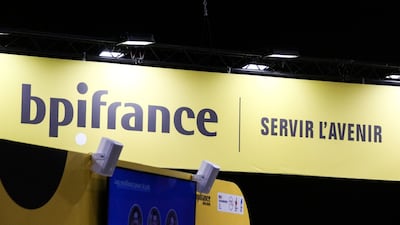Strategy
Sandoz’s aflibercept biosimilar Enzeevu launch in Canada comes just a few days after the firm signed a multiple asset deal, including an undisclosed ophthalmology product, with Alvotech, which recently gained immediate launch for its Eylea rival in the country.
Positive results from a randomized study in healthy volunteers mark a key milestone for Alvotech’s proposed Entyvio rivals AVT80 and AVT16.
Strides Pharma aims for higher revenues from Canada and other ex-US markets while waiting for controlled substances to ramp up gradually under the leadership of ex-Apotex CEO Peter Hardwick. However, a cut in US funding for the Global Fund is hurting the company and its competitors.
Slovenia’s Krka is ramping up capital spending to expand global manufacturing capacity, betting that industrial scale and supply resilience will drive its next phase of growth.
Sun’s founder reinforces the firm’s M&A strategy, indicating that it is "comfortable raising debt" if required, but shares no specific comment on the speculated interest in Organon. The Indian company also has "sufficient supplies" to meet demand for generic semaglutide in India post LoE.
BC Partners has completed its acquisition from Servier of French generics giant Biogaran after the French government allowed the private-equity takeover on condition that BPI France take a minority stake. Meanwhile, former Biogaran CEO Erick Roche has returned to the role after a long stint at Teva.
Teva is lining up Europe as the next regulatory market for its long-acting injectable olanzapine, following its US filing late last year, as the company looks to build a global schizophrenia franchise.
Sandoz and Alvotech have struck a deal that will see the firms collaborate on multiple biosimilar candidates for the Australian, Canadian and New Zealand markets across therapeutic areas including ophthalmology, immunology and gastroenterology.
Transpire Bio continues to advance its complex generics franchise, with another Paragraph IV filing for GSK’s Ellipta portfolio inhaler.
The US Association for Accessible Medicines has named Lupin’s Bob Hoffman as its new chair. Meanwhile, departures have been seen at Stada and Dr Reddy’s, among other industry management changes.
Alvotech has ticked off all of the remaining patent-related matters for its aflibercept biosimilar, with multiple market entries expected in 2026.
Even though the ink has long dried on the US-South Korea trade deal, new threats have prompted Celltrion to reiterate its “fundamental solution” to tariff concerns.
Dr Reddy’s gears for semaglutide debut across markets, including India and Canada, where Novo Nordisk has second brands of the GLP-1 agonist potentially ready. Can the Indian group close out compliance queries from the Canadian regulator soon?
Lanreotide supply issues cloud Cipla’s Q3 FY26 earnings, with impact seen in Q4 as well, though pipeline assets augur well for US growth continuity. Perpetual rights to Novartis’s Galvus effective Jan 1, seen adding momentum to India diabetes gains.
Sun Pharma’s generic Wegovy product has cleared regulatory review, positioning the company to enter India’s obesity drug market once patent protection lapses.
ANI’s Cortrophin Gel is benefiting from significant under-penetration in areas such as nephrology, neurology, rheumatology and pulmonology, the firm told attendees to the recent J.P. Morgan Healthcare Conference.
As Dr Reddy’s delivered results for its financial third quarter, the firm revealed a slew of updates for key biosimilars in its pipeline including filing and launch plans for abatacept in the US and Europe, as well as US setbacks on rituximab and denosumab.
BMS will continue to seek legal recourse even as Zydus Lifesciences launches the world’s first cut-price nivolumab biosimilar in India following a Delhi High Court division bench ruling in favor of the Indian company.
The leading Japanese generics player and local originator will collaborate on technology transfer, contract manufacturing and product succession as part of a cross-sector effort to strengthen supply chains for long-listed and off-patent medicines.
Hikma has launched its Enoby and Xtrenbo denosumab biosimilars to Amgen’s Prolia and Xgeva into the competitive US market. How will the firm fare against so many other rivals?




















